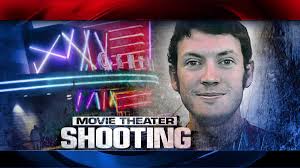
I would never wish a serious mental illness on anyone, but I do wonder how our elected officials’ perspectives might change if someone close to them became seriously ill.
Consider Arapahoe County District Attorney George Brauchler, the prosecutor who declared that the only acceptable sentence in the horrific Aurora, Colorado, mass murder shooting was death for James Eagan Holmes, a 25 year-old student who has been diagnosed with schizophrenia.
“You can bring justice to this act and to him,” Brauchler said during his closing arguments in the case, pointing at Holmes. “And for James Egan Holmes, justice is death.”
“Justice is death” had become Brauchler’s mantra from the beginning of the movie shooting tragedy.
No one can discount the savagery of Holmes’ actions. He murdered 12 people, including a 6 year-old child – and injured 70 others. As The Washington Post reported, the stories of these victims moved jurors to tears. All of us feel empathy for the victims. The survivors’ pain and suffering is difficult to imagine.
But as the parent of a son with a mental illness, I found Brauchler’s call for death to be rooted more in retribution and vengeance than in justice.
I have seen first hand how a mental illness can turn a non-violent person into a frightening stranger.
Obviously, it is much easier to forgive an individual who strips nude in public — because his mind tells him that shedding his clothing makes him invisible — than it is to forgive mass murder. Yet, both are the products of a mentally ill mind.
Prosecutors have an especially difficult task determining what role mental illnesses play in criminal acts. In my home state of Virginia, it is prosecutors who are the loudest and most adamant opponents to jail diversion, especially mental health courts/dockets. I have been told this is because prosecutors are fearful defendants will use mental illnesses as an excuse for escaping punishment for any and all crimes.
Let’s put aside the fact that being found not guilty by reason of insanity does not result in a defendant walking free from the courthouse. (It means being sent to a state hospital indefinitely.) Instead let’s focus on how we can calm a prosecutor’s fear of malingering – or more accurately – defense attorneys using mental illness as a dodge.
Inmates who appear in a mental health court often have a long history of documented mental illnesses. Their crimes often are clearly linked to mental illnesses. Many mental health courts only review non-violent cases.
All of these are safeguards.
Of course, the ultimate determinator should be psychiatrists. Sadly, this is where our system could use some tweaking.
Deciding if a defendant is sick and whether a mental illness caused the accused to not understand whether his/her actions were right or wrong can be tricky stuff. But the medical profession also has proven to be ripe with professional witnesses who are eager to sell their testimony for a price to either side.
In Europe, many courts avoid this ethical failing by having the court appoint and pay three psychiatrists to independently examine the accused and report their findings. That seems a more sensible approach to me than our current system.
Ultimately, it was one juror and only one who kept Holmes from being executed. Media reports suggest that juror opposed the death penalty.
But I wonder if that juror also might have known someone with a mental illness and, therefore, saw what most of us with ill family members saw when looking at Holmes — a very sick young man.



